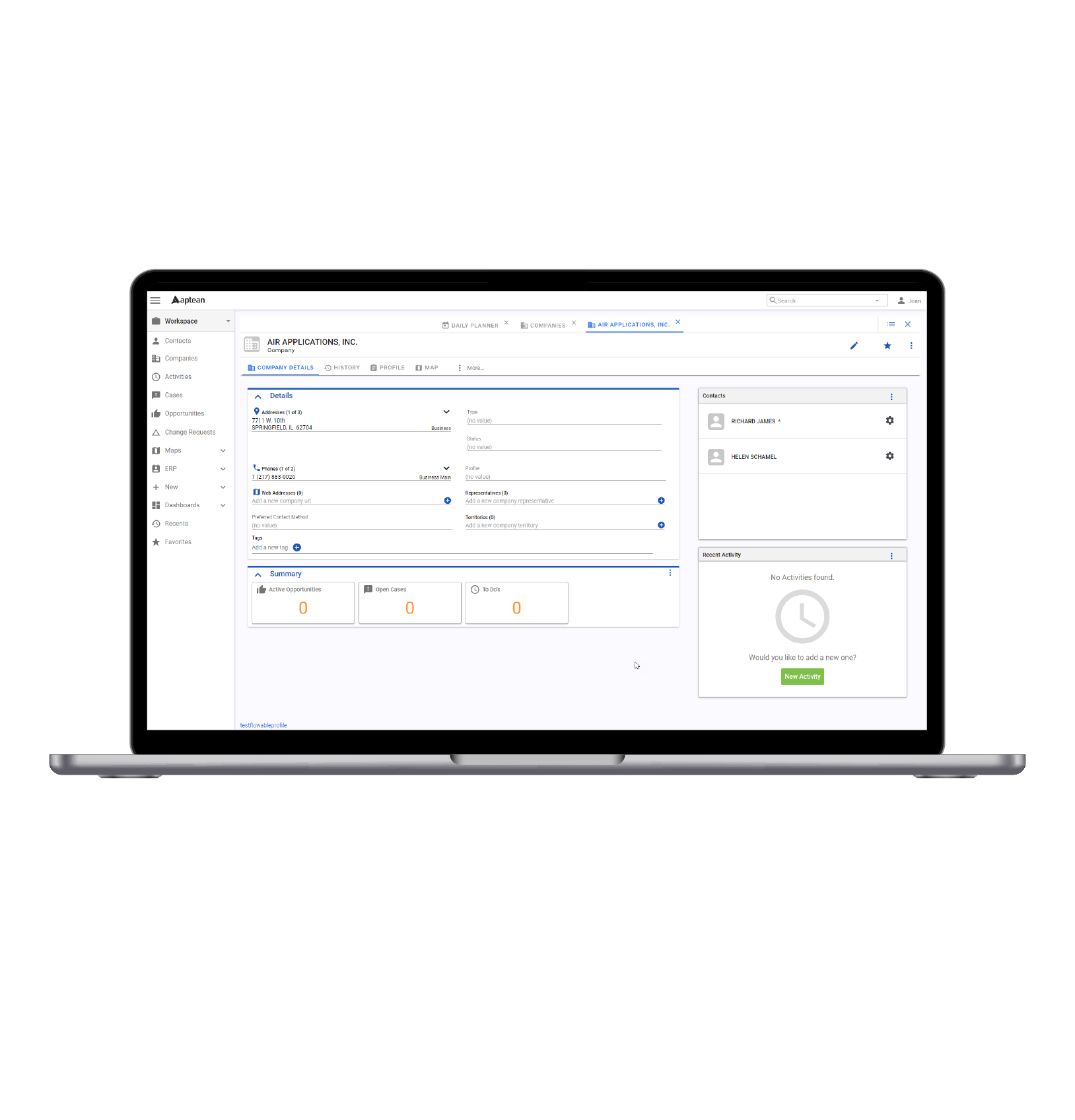What is ERP Software - Order Management
What is ERP Software - Order Management
What is ERP Software - Order Management
Dec 1, 2015
 Aptean Staff Writer
Aptean Staff Writer Order Management
The Order Management process covers the business processes required for the creation of a quotation for a prospect or customer, sales order management, invoicing and the receipt of cash. The functionality is tightly integrated with Materials Management and Customer Relationship Management.
Compiere is preconfigured to handle a number of sales order scenarios. System administrators can add new sales order types or change the rules associated with existing orders to match specific requirements.
Quotations
Compiere provides for the creation and printing of customer quotations based on general or customer specific price lists. Quotations can be made "binding," in which case they reserve inventory. Quotations may also be modified at any time and can be automatically converted to a Sales Order without additional data entry.
Sales Orders
A Sales Order is the "fulfillment control document" that is the foundation for generating sales order, shipment and invoicing documentation. In addition, Vendor Purchase Orders may be created automatically for the items specified on a sales order and directly shipped to the customer if appropriate.
Different types of sales orders cause different business process behavior in Compiere. For example, a "Prepaid Order" will not allow shipments until payment occurs. A "Point of Sale" order assumes the customer is at the counter with the goods in hand and generates all transactions including stock decrement, invoicing, and payment through the entry of a single document. A "Standard Order" by comparison, will check availability before accepting the order then queue the order for fulfillment by the warehouse and then generate an invoice in the next invoice run or otherwise in accordance with the invoice rules for that customer.
Compiere supports the following Sales Order Situations:
Standard Order — This is used when shipping products by availability. Users can generate the invoice immediately or after the shipment.
POS Order — This is used in 'over the counter' sales situations with anonymous customers. The order generates the shipment and invoice. The payment is received via Cash, Check, Credit Card, etc.
Credit Order — This is used for known (on account) customers, with or without a credit line. The order generates the shipment, invoice, and optionally receives the payment.
Warehouse Order — This is used when creating summary invoices. Users can select the shipments manually or create the invoice based on invoicing rules (e.g. weekly, on the 1st and 15th of a month, etc.).
Prepay Order — This is used in Web Store Transactions. Users can send the shipment and generate the final invoice after receipt of the money.
Shipments
Based upon the details captured on the Sales Order, one or more shipments can be generated immediately or automatically when inventory subsequently becomes available. Compiere automatically back orders unavailable items. Compiere can be configured to allow shipments to be effected from the shipment documentation or alternatively provide for a more disciplined warehouse approach by requiring explicit confirmation of picking and/or shipment prior to the generation of invoice documentation. Confirmations can be used to manage movements of inventory from, say, a receiving area to 'put away' areas from which it then becomes available for further processing.
Customer Returns
Compiere can automate your customer return processes, including generation of Return Materials Authorization (RMA). RMAs are linked to the original Sales Order and Shipment. Begin by specifying a return policy the requirements for accepting returns. Compiere supports both default return policies, and exceptions that are linked to specific Products, Business Partners or other criteria. Grant override privileges to certain people in your organization to enable even greater flexibility in processing returns. Return transactions and Credit Memos are generated automatically or manually depending on the RMA Document Type. Generate final return documentation automatically or manually as the returned goods arrive in your warehouse. As in the case of shipments, confirmations can be used to manage movements of inventory from the receiving area to ‘put away’ areas.
Customer Invoices
Generate invoices according to general business rules or based on specific arrangements in place with the customer. Generate invoices:
Immediately after each shipment.
When the order is completely shipped.
Based on a predefined invoice schedule specific to the customer.
For example, an invoice schedule could be established to arrange for the creation of a summary invoice including all shipments to the customer over the previous day, week, or month.
Receipts
When entering a Sales Order or Invoice; the payment rules allow flexibility in the automatic generation of receipts:
For cash transactions, a Cashbook entry is automatically generated.
For credit card, check, and direct debit transactions; a payment is created against the appropriate bank account.
Compiere currently supports merchant payment processors via VeriSign and PayFloPro.
Open Items are settled by entering Payments (i.e. receiving a check or creating a direct debit), creating a Cash Book entry (i.e. open invoice paid by petty cash later), or during the process of reconciling Bank Statements (i.e. bank transfers).
Compiere can use the Automatic Clearing House facilities of a specified bank to directly debit a business partner's bank account. The invoice is marked as paid and the transfer is maintained in the system as an unreconciled payment.
Request a Callback From a Manufacturing ERP Expert
Discover the benefits of software designed specifically for the discrete manufacturing industry.



